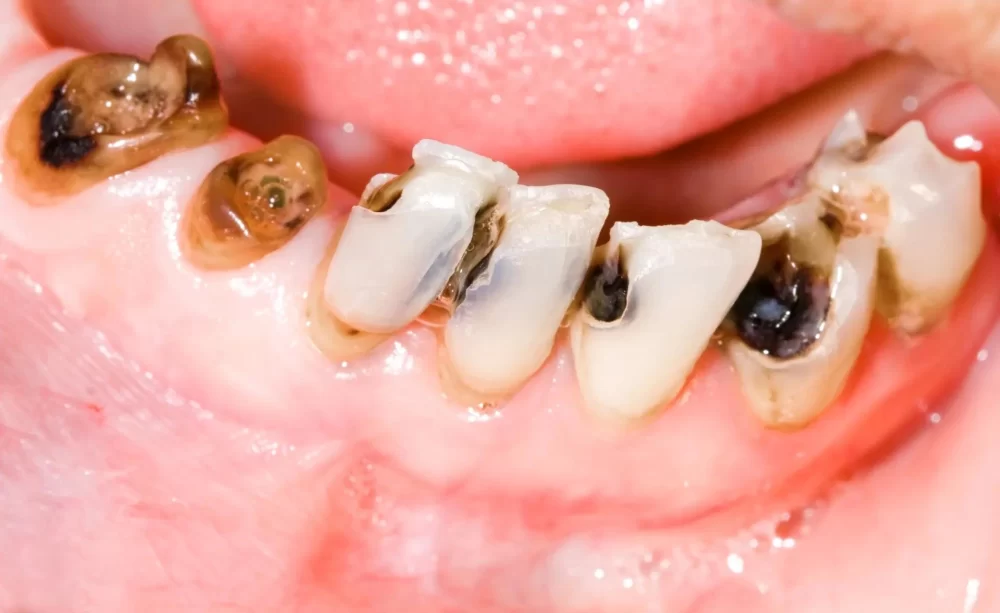
Tooth Decay and the Importance of Early Detection for Better Oral Health
- 1. Understanding Tooth Decay
- 2. Early Signs of Tooth Decay
- 3. Why Early Detection of Tooth Decay Matters
- 4. Prevention and Treatment: How to Maintain a Healthy Smile
- 5. Conclusion and Next Steps
1. Understanding Tooth Decay
Tooth decay, also known as dental caries or cavities, is a progressive process where the enamel of your teeth gets damaged by acids produced by bacteria in your mouth. These acids break down the sugars in food and create plaque, which can erode the tooth's protective surface. If left untreated, tooth decay can lead to tooth sensitivity, infection, and even tooth loss.
When you eat, the bacteria in your mouth consume sugars and carbohydrates, producing acids as byproducts. Over time, these acids weaken the enamel of your teeth, leading to decay. Without intervention, this process can continue to deepen, affecting not only the tooth enamel but also the underlying structures.
2. Early Signs of Tooth Decay
Detecting tooth decay in its early stages can make all the difference in preventing more severe damage. Early signs include:
- Tooth Sensitivity: Sensitivity to hot or cold foods and beverages can indicate the presence of decay.
- Discoloration: White spots on the teeth may signal enamel erosion, while brown or black spots can be a sign of deeper decay.
- Pain or Discomfort: Mild pain or throbbing in a tooth could be an early indicator of decay that has started affecting the nerve.
- Bad Breath: Persistent bad breath, even after brushing, can be a sign that decay has developed.
If you notice any of these signs, it's important to schedule a visit to your dentist as soon as possible. Catching tooth decay early allows for non-invasive treatments like fluoride treatments or dental fillings.
3. Why Early Detection of Tooth Decay Matters
Early detection of tooth decay is crucial for several reasons. Firstly, it can prevent more extensive damage to your teeth and gums. Once a cavity forms, it can quickly worsen and lead to more serious complications, including infections and abscesses. Detecting decay in its early stages allows for simpler and less expensive treatments, such as fillings or fluoride treatments, rather than more costly procedures like root canals or extractions.
Secondly, treating tooth decay early can help maintain your overall oral health. When a cavity is left untreated, it can create a domino effect of oral health issues, including gum disease, tooth infections, and even jaw problems. Regular dental check-ups and proper oral hygiene practices are essential for identifying potential issues before they escalate.
Lastly, early detection can significantly reduce discomfort. As decay advances, so does the pain and sensitivity associated with it. Addressing it early helps you avoid prolonged discomfort and potential complications.
4. Prevention and Treatment: How to Maintain a Healthy Smile
Prevention is always better than cure. To avoid tooth decay, follow these essential oral health tips:
- Brush and Floss Regularly: Brushing your teeth twice a day with fluoride toothpaste and flossing daily are the best ways to remove plaque and bacteria that cause tooth decay.
- Limit Sugar Intake: Reduce your consumption of sugary foods and drinks, which fuel the bacteria responsible for plaque buildup and decay.
- Visit Your Dentist Regularly: Routine dental check-ups and cleanings are vital for catching any signs of decay early and maintaining overall oral health.
- Use Fluoride Treatments: Fluoride strengthens tooth enamel and can help reverse early stages of decay. Your dentist may recommend fluoride treatments if you're at risk of cavities.
If tooth decay is detected, your dentist will likely recommend treatment options such as fillings, fluoride treatments, or crowns depending on the severity of the decay. Advanced cases may require root canal therapy or tooth extraction.
5. Conclusion and Next Steps
Tooth decay is a preventable condition that can lead to serious oral health issues if left untreated. Early detection and timely intervention are key to maintaining your smile and overall oral health. By practicing good oral hygiene, reducing sugar intake, and visiting your dentist regularly, you can avoid many of the complications associated with tooth decay.
If you’re concerned about tooth decay or would like to learn more about prevention and treatment options, consult your dentist today. Early detection truly makes a difference—don’t wait for a small problem to become a major issue. Take proactive steps for better oral health now!
Learn more about how to prevent tooth decay with our latest oral health products. Click here to explore our range of dental care solutions.







 Westgate Dental Arts
Westgate Dental Arts Coventry Family Dental
Coventry Family Dental Familia Dental
Familia Dental Dr. Daniel S. Fife, DDS
Dr. Daniel S. Fife, DDS Dentistry At Suburban Square: Michael I. Wollock, DMD
Dentistry At Suburban Square: Michael I. Wollock, DMD Comfort Care Dental
Comfort Care Dental The Importance of Oral Health Education During Pregnancy for a Healthy Pregnancy
The Importance of Oral Health Education During Pregnancy for a Healthy Pregnancy Why Skipping Dental Checkups Can Lead to Bigger Oral Health Problems
Why Skipping Dental Checkups Can Lead to Bigger Oral Health Problems Advantages of Porcelain Dental Restorations
Advantages of Porcelain Dental Restorations Best Tips for Brushing Your Teeth Properly for Healthy Gums: Essential Techniques for Oral Health
Best Tips for Brushing Your Teeth Properly for Healthy Gums: Essential Techniques for Oral Health How Can Diabetes Cause Tooth and Gum Problems? Preventing and Managing Oral Health Issues
How Can Diabetes Cause Tooth and Gum Problems? Preventing and Managing Oral Health Issues Healthy Habits for Promoting Good Oral Health and Hygiene: Tips for a Healthy Smile
Healthy Habits for Promoting Good Oral Health and Hygiene: Tips for a Healthy Smile